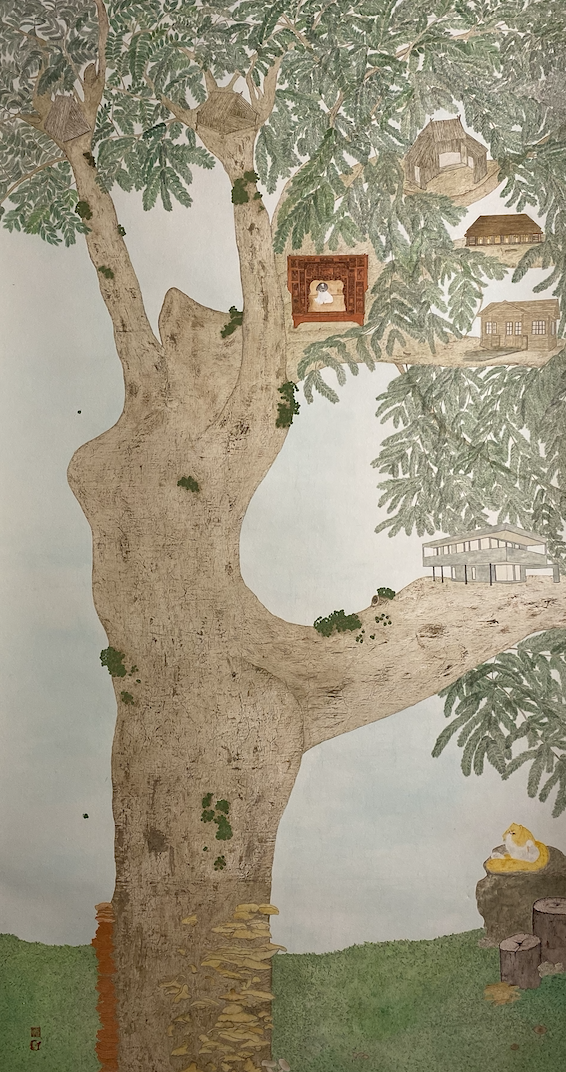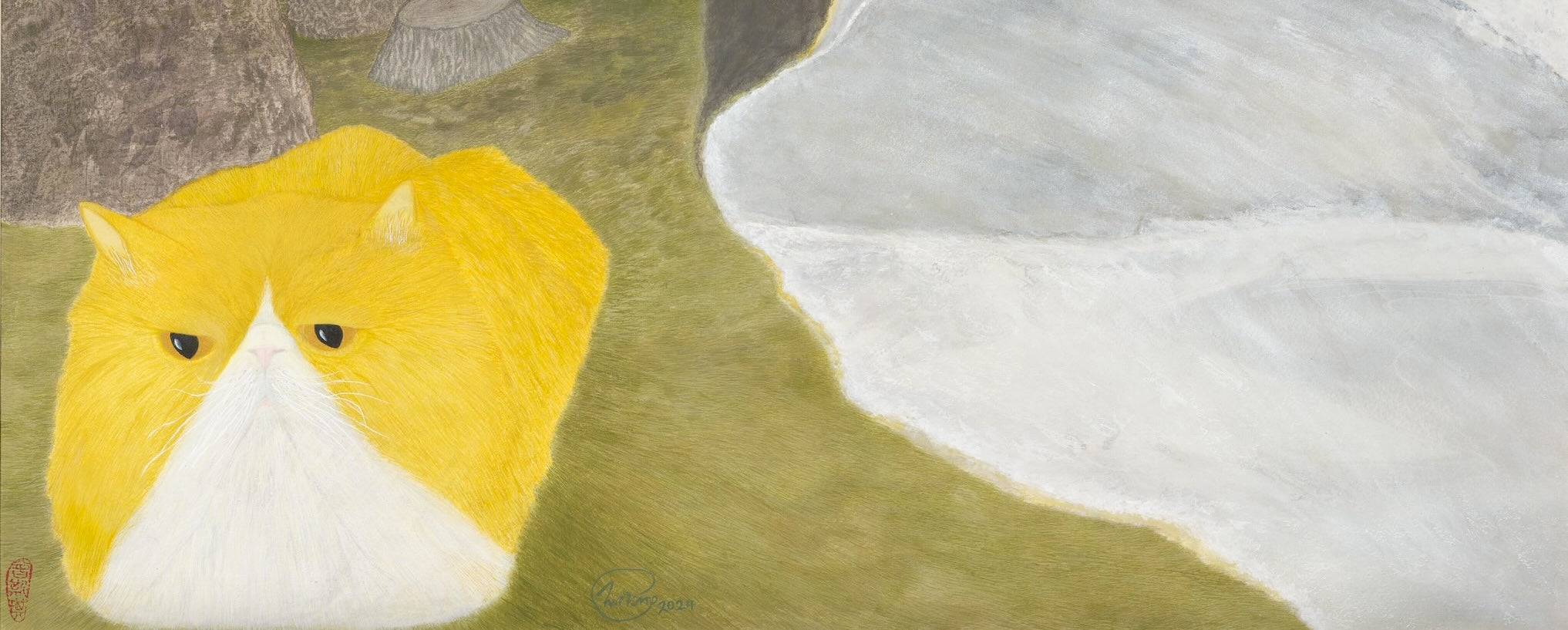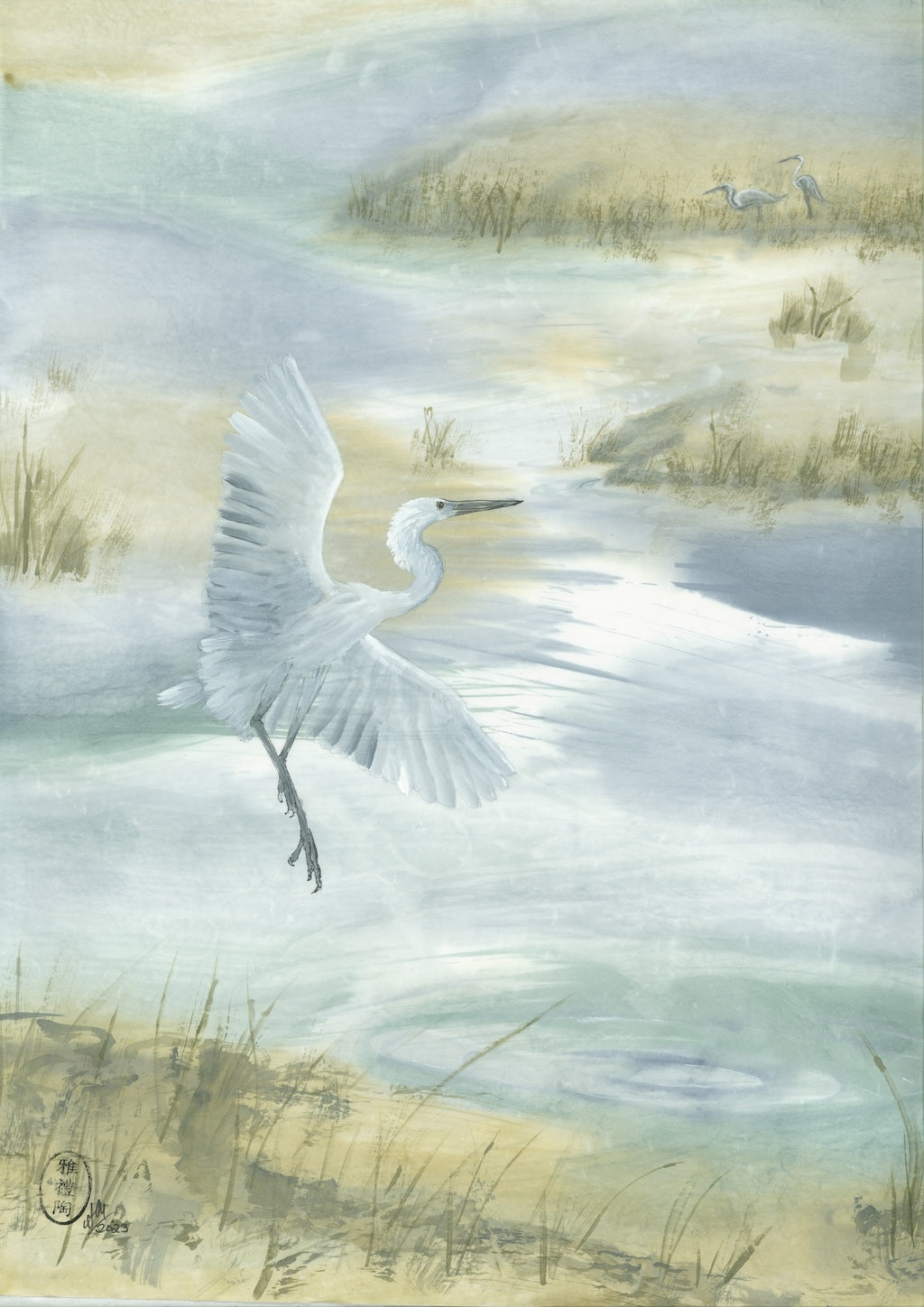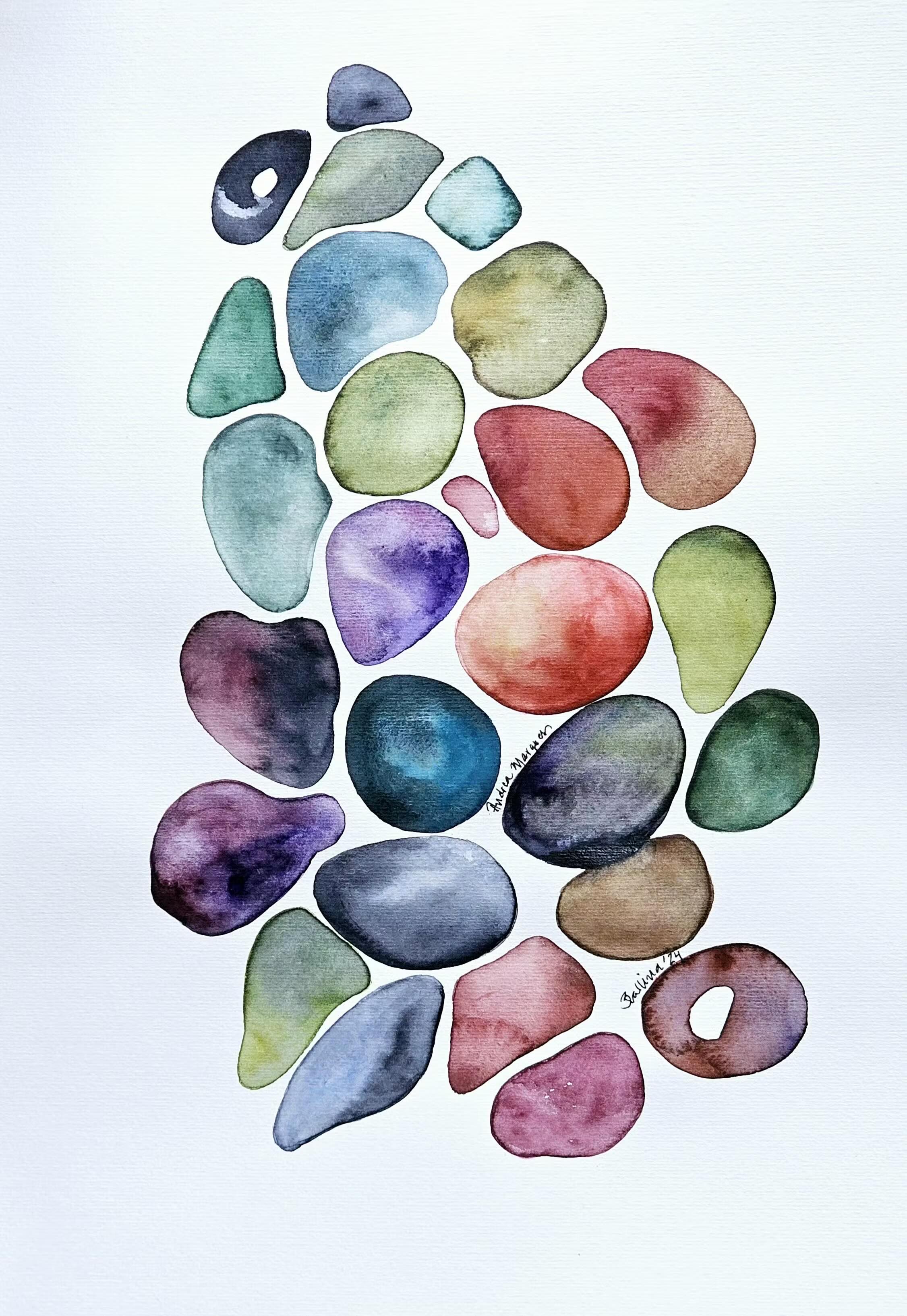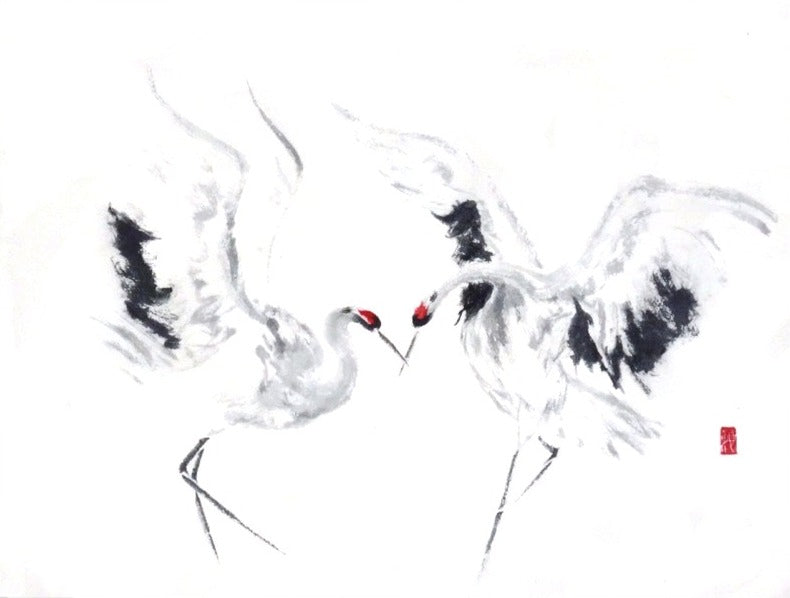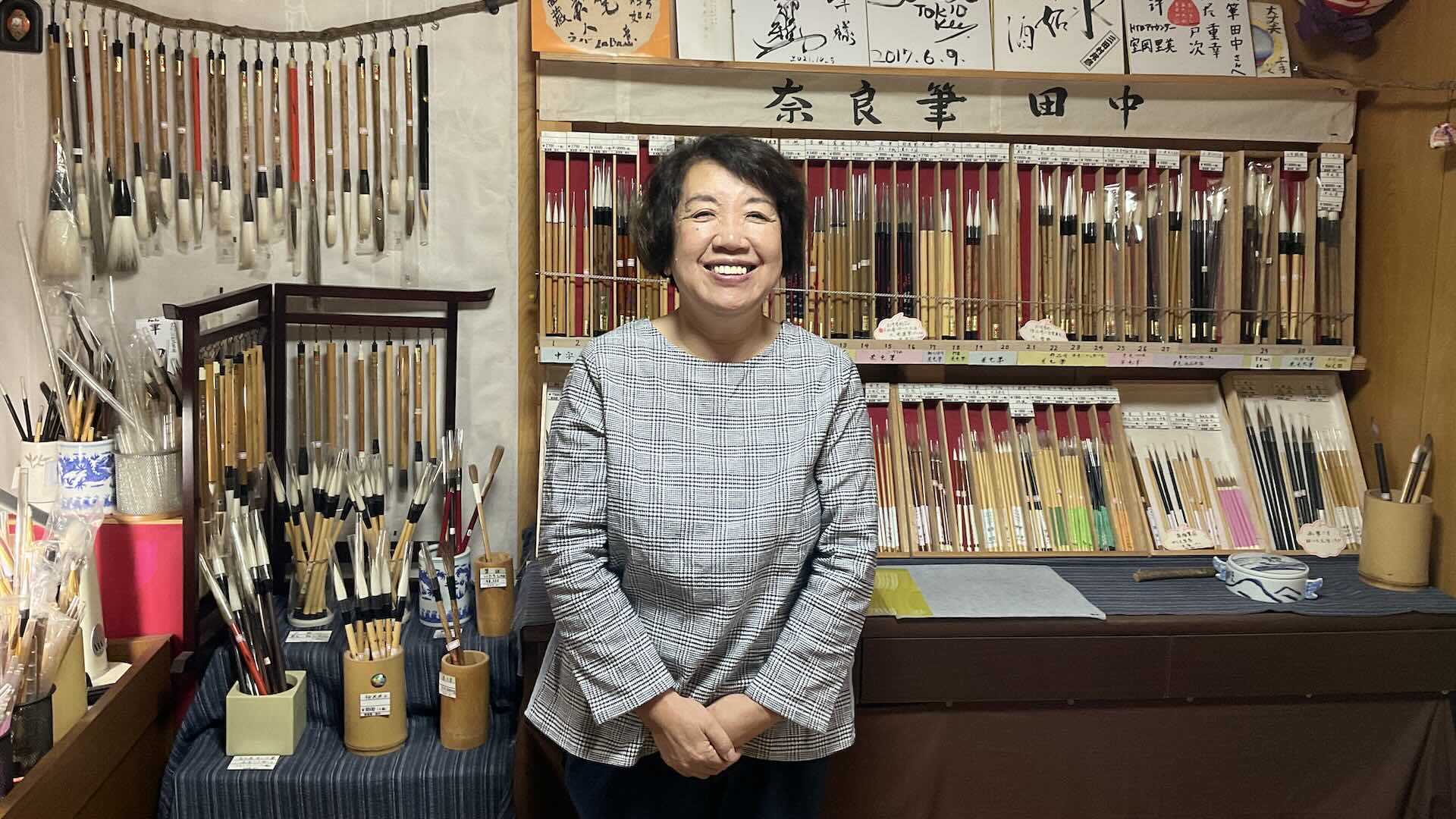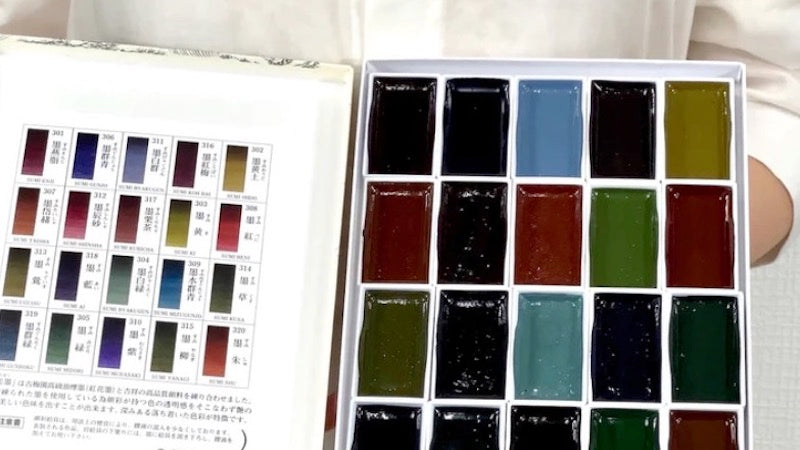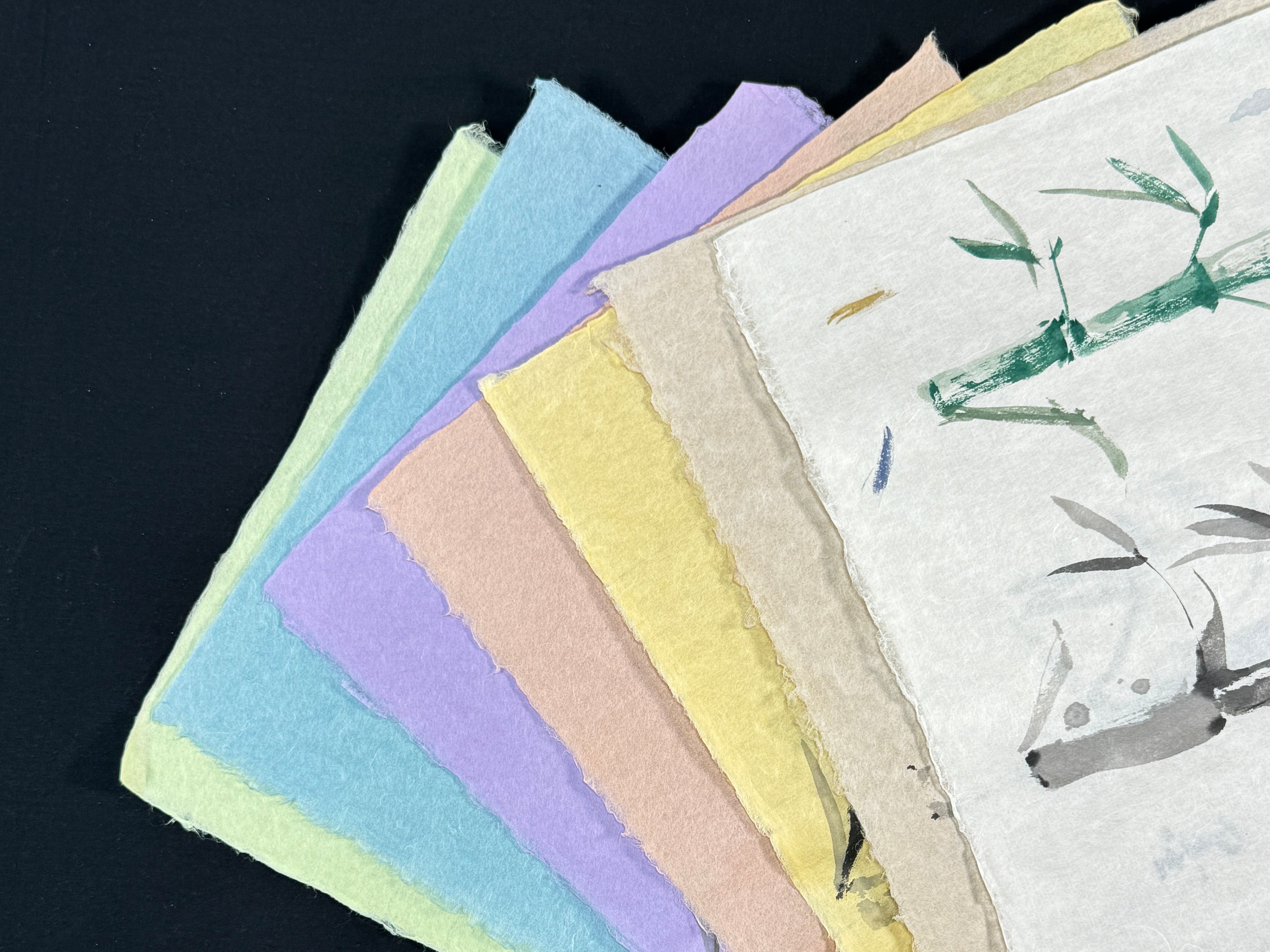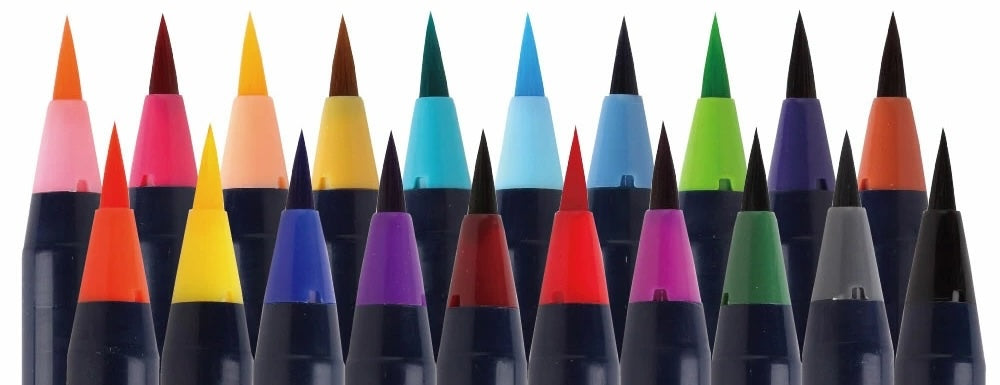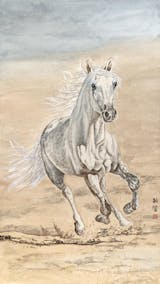Dancing in Harmony with Nature
Artist: Eva Tsang - Hong Kong
Medium: Ink, Mining materials, Grouch & Temper on paper
Size: H 174cm x L 93cm
Year : 2020
Description:
Dancing in Harmony with Nature — For this work, the painter drew inspiration from the history and knew the importance of trees to humanity. In the course of human history, aesthetic space and practical space are often intertwined, the work uses with personal fine drawing methods. As such, it represents the history of humanity as if it were a dance.
Our ancestors had a long history of building early shelters in trees, with which our history, culture, legends, and art are deeply connected to trees.
Timber is a useful raw material. Our palaeolithic ancestors used it not only for shelter, but also for fuel and making an array of tools. The work depicts and explores seven different tree houses throughout the ages in order to underscore how humanity and trees have evolved together. Wood, in its many forms, has notable aesthetic value, and serves as an important medium for the arts and human expression. Once wood is no longer useful to us, it decomposes and return to Mother Nature.
畫題 :現、未、過
畫家 : 曾斯琪女士,香港
創作媒介:水墨、廣告彩、蛋彩設色 紙本
尺寸:
高 174cm x 長93m
創作年份 : 2020
作品介紹:
《 天姿意態舞悠然 》— 創作靈感源於歷史,並知道樹木對人類重要性。作品採用個人碎筆繪畫技法及不同空間的融合,包括實用性及美學。它為着代表我們七個不同的歴史地跳舞。
人類祖先從樹上建「巢居」,我們的歴史、文化以及它所衍生的所有故事和藝術深深紮根於最原始的聯繫之中。
木材是實用的材料。舊石器時代我們的袓先不僅用它來躲避風雨,還用它取暖、煮食、製造工具。通過探索七種古人類結構,畫作探索了人類和木材是如何共同進化的。
木材同時也具有美學價值,因為它是表達藝術或不可缺的媒介。木材被使用過後會回歸大自然。
The "PEA" style of Art / 艺术的 "PEA "风格
PEA, an abbreviation for Potential Expressionist Art, is a metaphor for the ‘pea’ which constitutes the heart of a mythological story called Princess and the Pea.
A pea, buried in the soil and being watered, may grow to as high as haotian (meaning ‘boundless skies’). Haotian refers to a unique land bearing the connotation that on the road of artistic exploration, one has to cultivate solid roots (the foundations of sketching, aesthetics and design elements); with such a cornerstone, one can achieve in the boundless realm of art, unleashing one’s potential to the fullest.
Potential Expressionism is a systematic training encompassing aesthetics, design, history and culture. It aims to evoke one’s latent creativity via breaking all conventional shackles to arrive at one’s own artwork. By first encouraging one to make visual marks at random, one is then directed to trace those patterns and associate them with one’s personal belief and aspiration, historical memory, aesthetical inclination, and ultimately creating one’s unique artwork.
Everyone has his or her own hidden potential. What’s important is to search for and give free reign to it !
PEA 是英文Potential Expressionist Art 的縮寫,當中有指涉〈碗豆公主〉此一神話故事中碗豆所蘊含的喻意。一顆碗豆,埋下泥土,澆水便可成長至「昊天」,一個別有洞天的域地,意謂在藝術路上,只要有根(根植素描、美學與設計等基礎元素),有了基石,便可成就於藝術無界地域,隨心所欲發揮潛能。
「潛能表現主義」為集美學、設計及歷史文化於一身的系統訓練,旨在發掘個人獨有的潛在創意,鼓勵學員循「先破後立」的方向,隨偶建圖案的痕跡,依形導勢、依勢造境,貫通個人信念意象、歷史回憶、美學情懷,再經仔細斟酌,創作出獨一無二的作品。
每個人背後都隱藏著不同的潛能,端的是能否被發掘出來並加以發揮 !
https://www.evatsang.net
https://www.hkpeaa.org.hk
https://www.facebook.com/hkpeaaorg/
Kobaien products used in this work
( 这项工作中使用的古梅園产品 ) :
GYOUUN KOBAIEN SUMI LIQUID INK ( 古梅園 墨汁 暁雲 ) 500ML

